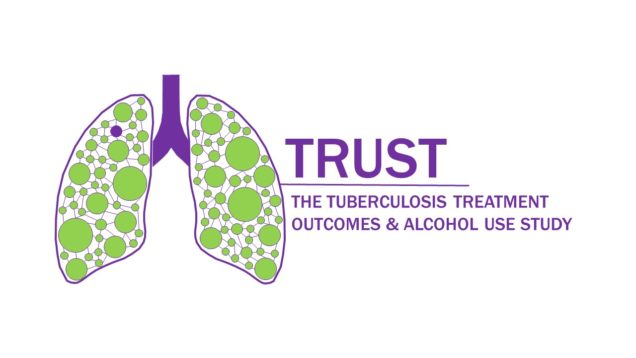TRUST

The Tuberculosis Treatment Outcomes and Alcohol Use Study (TRUST) is a prospective cohort study launched in Worcester, South Africa in May 2017. The study is led by Dr. Karen Jacobson through Boston Medical Center, in partnership with the South African Medical Research Council (SAMRC), University of Cape Town (UCT), and Stellenbosch University (SU). The primary purpose of TRUST is to examine the associations between problem alcohol use and tuberculosis (TB) treatment outcomes. TRUST is funded by the National Institute of Allergy and Infectious Diseases (NIAID) through the R01 mechanism.
Aims
1. To (i) examine the associations between problem alcohol use and TB treatment outcomes, and (ii) demonstrate that these associations persist independent of adherence to TB treatment among HIV infected and uninfected participants.
2. To evaluate the effect of problem alcohol use on the pharmacokinetics and pharmacodynamics of TB drugs among HIV-uninfected participants.
3. To evaluate (i) Mtb diversity in host, overtime and in a specific set of drug resistance, drug tolerance, virulence and immune regulator genes, for evidence of directional and diversifying selection, and (ii) how Mtb diversity and genes under selection associate with time-to culture conversion and poor treatment outcomes.
4. To compare rates of dysglycemia in people with HIV (PWH) and HIV-uninfected persons receiving TB treatment to assess changes in blood glucose levels over time and how alcohol use mediates the relationship; and to assess the role stress, inflammation and alcohol consumption play in relation to blood sugar levels and to assess epigenetic modifications at DNA sites associated with TB risk.
Methods
TRUST will recruit approximately 440 participants aged 15 years or older who are initiating treatment for drug-sensitive TB at the Worcester Community Day Centre, located in Worcester, Western Cape Province, South Africa. Total follow-up time will be approximately 18 months (6 months on treatment and 1 year post-treatment follow-up). During their 6-month treatment period, participants will complete monthly study visits and daily directly observed therapy; after treatment is complete, participants return for follow-up visits every 3 months for the next year. During these study visits, participants complete assessments of demographic charactistics, medical history, behavioral characteristics (smoking, alcohol use, substance use, depression risk, household hunger, etc.), and TB symptoms. Participants also complete blood testing for biologic tests & COVID serology, chest x-rays, urine drug testing, dried blood spot cards for PEth, PAXgene for RNA sequencing, whole genome sequencing for tuberculosis, and epigenetic analyses; TB treatment regiment and outcome are also recorded.
Publications